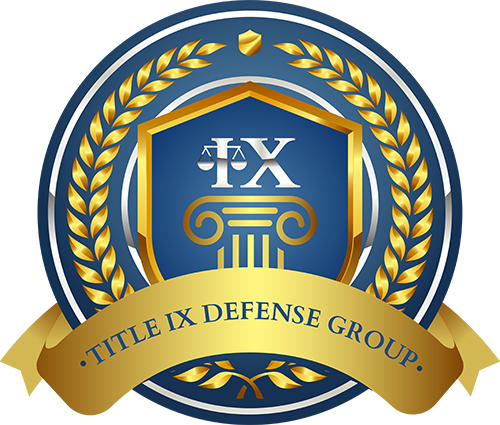For private schools, the intersection of Title IX defense strategies and compliance requirements presents unique challenges and opportunities. Understanding the extent to which Title IX applies to private educational institutions is crucial in ensuring an environment free from sex-based discrimination, thereby fostering equality and safety for all students.

Private Schools and Federal Law
In the realm of education, private schools stand apart in how they relate to federal laws. These institutions, unlike their public counterparts, are not directly under the purview of government operation and funding. Instead, they sustain themselves through avenues like student tuition, private donations, and other sources independent of government support. This key distinction plays a pivotal role in shaping the extent to which private schools are subject to federal regulations, including those encompassed by Title IX.
When considering the relationship between private schools and federal laws, the crux of the matter often lies in financial connections and the level of involvement with government programs. Generally, private schools do not fall under the comprehensive range of federal regulations that govern public schools. Yet, this relative autonomy from government oversight does not equate to a total exemption from all federal legal requirements. The determining factor in whether a private school must comply with specific federal laws, such as Title IX, hinges on its engagement with federally backed programs or its acceptance of federal funding.
Criteria for Compliance with Federal Statutes:
- Federal Funding: The most straightforward criterion for compliance is federal funding. When a private school receives direct federal assistance, whether through grants, subsidies, or participation in federally funded programs, it generally becomes subject to federal laws like Title IX. This compliance is a condition of receiving such funding, ensuring that the school adheres to the federal government’s nondiscrimination standards.
- Participation in Federal Programs: In some cases, private schools may participate in certain federal programs without direct funding. This participation can also bring the institution under the umbrella of federal laws. For example, involvement in federal lunch programs, educational initiatives, or research grants may require adherence to specific regulations, including those related to nondiscrimination.
- State Regulations and Accreditations: State laws and accreditation requirements can also play a role. Some states may impose regulations that necessitate compliance with certain federal standards as a condition of state-level funding, licensing, or accreditation. These requirements can indirectly compel private schools to align with federal laws, including Title IX, especially when they mirror or reinforce federal statutes.
- Voluntary Compliance: Occasionally, private schools may voluntarily choose to comply with federal laws like Title IX. Institutional policies, ethical standards, or in response to community expectations might drive this voluntary adherence. While not legally mandated, such voluntary compliance reflects a commitment to the principles of equality and nondiscrimination championed by federal laws.

Title IX Compliance in Private Schools
Title IX compliance within private schools is a nuanced and multifaceted issue. While Title IX is widely recognized for its role in public educational institutions, its application in private schools, including scenarios that necessitate compliance and potential exemptions, requires a detailed analysis.
Scenarios Requiring Compliance:
- Educational Activities and Athletics: Private schools participating in interstate athletics or other extracurricular activities that involve federal funding are required to adhere to Title IX. This extends to ensuring equal opportunities and treatment in sports and other school activities.
- Admissions and Scholarships: Private institutions that offer scholarships based on federal funds must comply with Title IX in their admissions and scholarship distribution, ensuring that no sex-based discrimination occurs.
- Employment Practices: For private schools receiving federal support, Title IX also influences employment practices, requiring equitable treatment of all genders in hiring, promotion, and working conditions.
Exemptions and Special Cases:
- Religious Institutions: A significant exemption under Title IX applies to private schools with a religious foundation. If the school’s religious tenets conflict with Title IX requirements, they may be exempt from certain aspects of the law. This exemption is critical for religious schools to maintain their doctrinal integrity while navigating federal law.
- Single-Sex Schools: Private single-sex schools often have a different interaction with Title IX. While they are allowed to maintain single-sex status, these institutions must still ensure that their policies do not discriminate based on sex in other aspects, like employment or access to courses.
- Voluntary Compliance: Some private schools may voluntarily adopt Title IX guidelines, even without federal funding. A commitment to equality and non-discrimination often drives this and may involve consulting with a Title IX defense lawyer to develop appropriate policies.
In cases where compliance is required, private schools often work with Title IX defense lawyers to develop robust policies and response mechanisms. These legal professionals help in interpreting Title IX requirements, training staff, and setting up grievance procedures to handle potential violations effectively.

Implications of Title IX Compliance for Private Schools
The impact of Title IX on private schools extends beyond legal obligations, influencing their policies, practices, and overall educational environment. While compliance ensures a commitment to non-discrimination and equality, it also presents a unique set of challenges and benefits. The perspectives of educators, administrators, and legal experts further illuminate these implications.
Resources for Private Schools: Navigating Title IX Compliance
For private schools seeking to understand and implement Title IX regulations effectively, a wealth of resources and support systems are available. These resources range from legal advisories and professional organizations to educational materials, each playing a crucial role in aiding schools to navigate the complexities of Title IX compliance.
Legal Advisory Resources:
- National Association of Independent Schools (NAIS): NAIS offers guidance and resources specifically tailored for private schools, including best practices for Title IX compliance, policy development, and training materials.
- Title IX Defense Lawyers: Consulting with lawyers who specialize in Title IX defense can provide schools with tailored legal advice, policy review, and training for staff and administrators. These experts assist in ensuring legal compliance and effective response to Title IX issues.
- Legal Aid Organizations: Non-profit organizations often provide legal support and resources to educational institutions. They can offer insights into Title IX compliance, workshops, and seminars.
Professional Organizations and Networks:
- Independent School Management (ISM): ISM provides research, tools, and advice on a variety of issues, including Title IX compliance. They offer webinars, articles, and consultancy services.
- Council for American Private Education (CAPE): CAPE is a coalition of national organizations and state affiliates serving private schools. They provide updates and guidance on federal education policies, including Title IX.
- Educational Collaboratives: Joining local or regional educational collaboratives or consortiums can be beneficial. These groups often share resources and best practices, including Title IX compliance strategies.
Educational and Training Resources:
- Online Platforms and Webinars: Numerous online platforms offer courses and webinars on Title IX compliance. These resources often include training modules for staff and students, policy templates, and case studies.
- Government Resources: The U.S. Department of Education’s Office for Civil Rights provides extensive information on Title IX, including guidelines for schools, FAQs, and policy samples.
- Conferences and Workshops: Attending conferences and workshops focused on Title IX and private education can provide valuable insights, networking opportunities, and up-to-date information on compliance requirements.
These resources provide a solid foundation for private schools to understand and effectively implement Title IX regulations. Utilizing a combination of legal advisories, professional networks, educational resources, and staying informed through research and publications, private schools can navigate Title IX compliance with greater confidence and efficiency.

In conclusion, while the journey of Title IX compliance in private schools is complex and ever-evolving, it is a vital part of ensuring a fair and respectful educational experience. By staying informed, utilizing available resources, and proactively addressing compliance requirements, private schools can effectively navigate this landscape, benefiting their communities and society at large.











